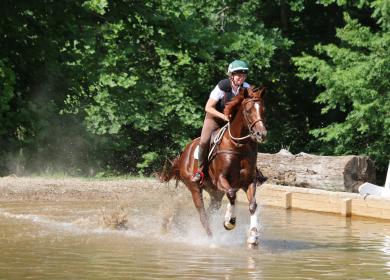My 6yo TB homebred mare apparently has a rear in there. Ugh. She has done it now three times, once last year and twice (within a few minutes) this year. Both times were higher stress situations than normal.
I did NOT feel it coming and it was a bit spectacular, unfortunately. I was definitely not in her face any of the times (i.e. with a short rein restraining her or anything like that.) All three times it was actually quite smooth, I just leaned forward and rode it out, we came down and I put her to work. But it’s incredibly disconcerting to know it is there.
The last times it happened, this year, I was in a week long clinic situation (wish it had been Buck, but it wasn’t) and I became hyper aware for the rest of the clinic, after it happened. If she started to paw (she has always been a pawer) I put her to work and then brought her back and gave her an opportunity to stand. Rinse, repeat. I really want to prevent this from happening again but also, is there anything to be done WHILE she is doing this? I’ve been so surprised I couldn’t even growl at her or anything. I am not about to touch her mouth, or pull her to the side (which was actually suggested to me) or knock her in the head with a bottle (also suggested, I didn’t think that answer was even still around).
I honestly feel like when she did it she had just ‘had enough’ (it was AFTER the lesson), she was sweaty, flies were bad and she had been exposed to quite a bit for the two days leading up to it and was DONE. 
Any other thoughts on plans to prevent it (other than my ‘go forward and work’ plan) or anything to discourage her during the act if it happens again?
I don’t believe she was sore anywhere (teeth have been checked) but she had worked harder than normal and went on to work the rest of the week without incident. Thanks for any thoughts.


